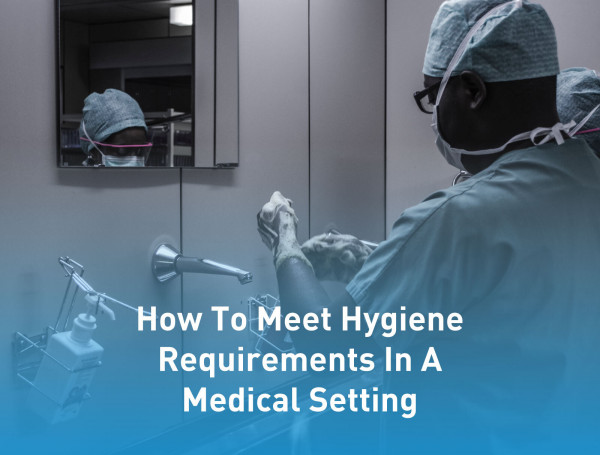Any medical or healthcare setting should already have strict rules when it comes to hygiene requirements. With many settings having their own way of doing certain things, the main requirements are the same, and can help staff and patients to stay safe.
To ensure your medical setting meets proper hygiene requirements, not only to prevent the spread of COVID-19, but to also maintain general hand hygiene, we’ve put together a quick list of things to focus on. You may be able to highlight some areas you can improve upon in your own settings - if you’re in need of any particular hygiene products to help, we’re more than happy to assist!
Maintain a clean working environment
We’re all concentrating on keeping environments as clean as possible and sanitised/disinfected regularly, and keeping this up will prevent any spread of infection. If it’s not already in place, ensure you have a strict cleaning schedule for your environment and a rota for staff members to take into account.
There is an obvious link between poor environmental hygiene and the transmission of germs,and every day items and surfaces such as light switches, door handles and telephones are some of the worst culprits for passing on viruses. Thorough, regular cleaning and sanitising is the answer!
Decontaminate shared equipment
Before COVD-19, we probably wouldn’t consider disinfecting smaller items such as pens, patient files or computer mice, but these days, everything needs a good clean before it is used by another person. Decontaminating shared equipment should now be done after each use and in many settings, it’s probably already become second nature to staff members.
Educate and train staff in the right way
Staff shouldn’t be expected to know the correct practices without the right training in place, especially if you have taken on any new staff to cope with the demand COVID-19 has brought to medical settings across the world. Make time to properly educate them on the correct way to clean and disinfect as well as ensuring that they adhere to strict hand hygiene procedures.
Basic hand washing and sanitising facilities
Encouraging regular hand washing and sanitisation is the biggest way to prevent the spread of infection. It may seem a simple thing, but correctly washing hands is something which needs to be learned. The NHS has a helpful article here which can educate staff to wash their hands in the right way. Sanitisation should be used when hand washing isn’t readily available. Ensure cleaning and sanitisation stations are readily available when staff or patients need them.
Hupfer offers a variety of hand-washing products to meet hygiene requirements, including soap dispensers and hand wash basins. If you have any specific requirements for your medical setting, let us know and we’ll do our best to help!

